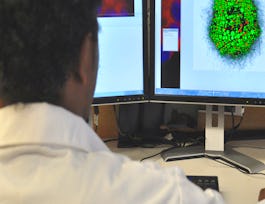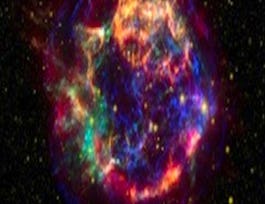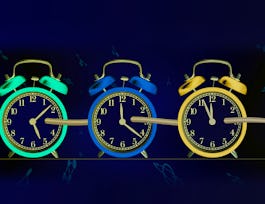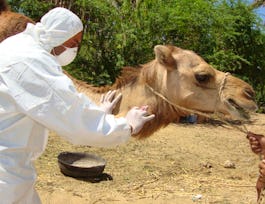In this course we will examine the incredible variety of life that inhabits this planet including microorganisms, plants, and animals. For each of the major groups we’ll learn about their characteristics, functions, and how they came into existence as well as some of the roles they play in the natural world, and how they’re relevant to people. We’ll also take a close look at us humans and consider what we know about our origins and what might become of us in the future.



Introduction to Biology: Biodiversity
This course is part of Introduction to Biology: Ecology, Evolution, & Biodiversity Specialization

Instructor: Scott Solomon
Sponsored by Coursera Learning Team
3,781 already enrolled
(49 reviews)
Recommended experience
What you'll learn
Origins, characteristics, and functions of major groups of life; the roles they play in the natural world; and how they are related to people
Skills you'll gain
Details to know

Add to your LinkedIn profile
16 assignments
See how employees at top companies are mastering in-demand skills

Build your subject-matter expertise
- Learn new concepts from industry experts
- Gain a foundational understanding of a subject or tool
- Develop job-relevant skills with hands-on projects
- Earn a shareable career certificate


Earn a career certificate
Add this credential to your LinkedIn profile, resume, or CV
Share it on social media and in your performance review

There are 8 modules in this course
What's included
2 videos3 readings1 discussion prompt
What's included
5 videos7 readings3 assignments1 discussion prompt
In this module, we will learn about the major groups of prokaryotes, the role of the human microbiome, the discovery of antibiotics, and how bacteria develop antibiotic resistance.
What's included
4 videos5 readings3 assignments
In this module, we will learn about the differences between prokaryotes and eukaryotes, the major groups of protists, plants, and fungi and how they affect people and other organisms.
What's included
5 videos7 readings2 assignments1 discussion prompt1 plugin
In this module, we will learn about the evolutionary origins of animals, as well as some of the characteristics and importance of invertebrate animals such as Cnidarians, Rotifers, Mollusks, and Arthropods.
What's included
7 videos8 readings2 assignments1 discussion prompt1 plugin
In this module, we will learn about the major groups of fish, reptiles, amphibians, and birds.
What's included
7 videos9 readings4 assignments
In this module, we will learn about the major groups of mammals, including humans and other primates.
What's included
7 videos8 readings2 assignments2 discussion prompts
What's included
1 video1 peer review
Instructor

Offered by
Why people choose Coursera for their career




Learner reviews
49 reviews
- 5 stars
95.91%
- 4 stars
2.04%
- 3 stars
2.04%
- 2 stars
0%
- 1 star
0%
Showing 3 of 49
Reviewed on Oct 18, 2024
I really like this course! Was very exciting stuff to learn... Thank you to the professor!!
Reviewed on Jun 24, 2024
The professor was great at explaining each topic. All articles needed for the topics were provided which was wonderful for reading in your spare time.
Recommended if you're interested in Physical Science and Engineering

Icahn School of Medicine at Mount Sinai

Princeton University

The Hong Kong University of Science and Technology

University of Geneva

Open new doors with Coursera Plus
Unlimited access to 10,000+ world-class courses, hands-on projects, and job-ready certificate programs - all included in your subscription
Advance your career with an online degree
Earn a degree from world-class universities - 100% online
Join over 3,400 global companies that choose Coursera for Business
Upskill your employees to excel in the digital economy


